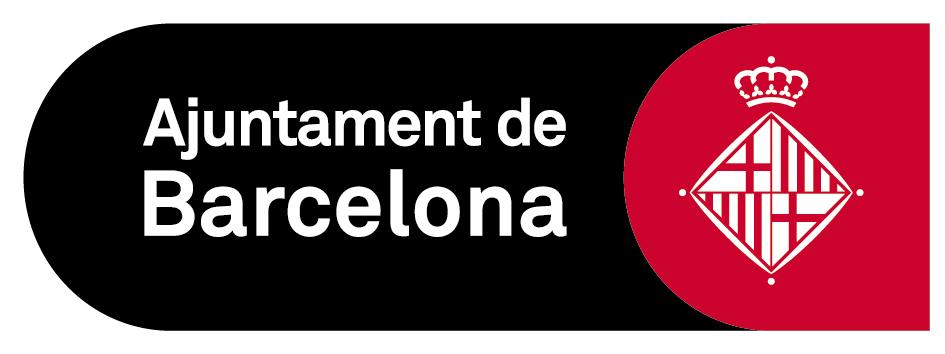Dossier
Unhealed wounds, strength regained: Karabakh women rise back again after the war
The unrecognized country is now trying to get back to normal life. Walking down the capital of Stepanakert one cannot even assume that it has become a front line for the war. Though, the Russian presence in the country and Azerbaijani and Turkish flags on the only route to Karabakh keep reminding of what happened in the region just six months ago.
The military actions have not only changed the map of the region, but they also had a huge impact on all the women that we introduced to you last year. All of them had stayed in Nagorno-Karabakh for most of the war and did their best trying to help win the war. Even though some of them have lost their houses and their loved ones during the war, they have decided that they need to return and continue their activities in Nagorno-Karabakh.
Nationalia returned to the region six months after the start of the war and met with the same women except for Astghik Mirzoyan, who had some personal issues and could not meet us.
Hope dies last and miracles happen
Vera Grigoryan has started, again, to engage in the matters of missing freedom fighters of the first Karabakh war when her son went missing. In 2020, after 26 years, history repeated itself, and Vera Grigoryan’s organization, the Union of the Relatives of the Missing Freedom Fighters, has more visitors than ever.
Vera Grigoryan says that the relatives of missing soldiers and freedom fighters visit their office not only from different parts of Nagorno-Karabakh but also from Armenia. They bring with them every piece of information that can help them to find their missing relatives —photos, videos, documents. Vera Grigoryan collects them into folders and tries to help them in search of their loved ones.
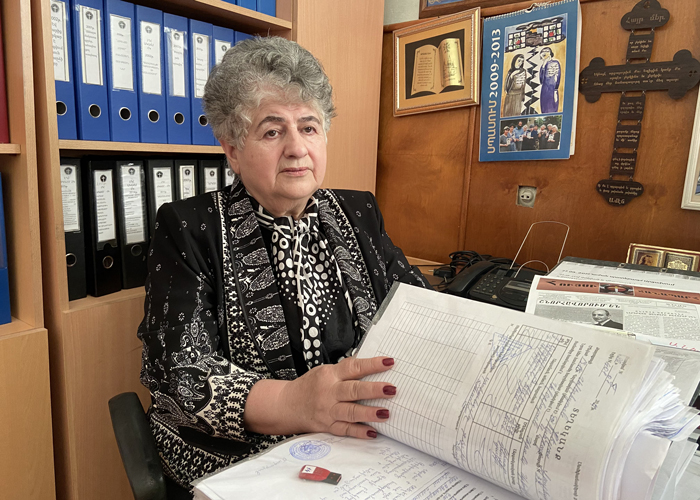 Vera Grigoryan. / Photo: A. C.
Vera Grigoryan. / Photo: A. C.The building of the Union was also damaged. You can still see the traces of the fragments of bombs on the building. Vera tells that the doors and windows were also broken. Now they have fixed them and they can continue their activities in the same building. She was worried about her archive of the cases of missing freedom fighters. Luckily, it was unharmed. Her garden was also damaged during the war, some trees were burnt and animals were killed. Vera herself was staying in the shelter during the first two weeks of the war. After, she was evacuated to Armenia. Vera got injured during the evacuation and had to stay in hospital for one month.
“This second war opened our wounds. Some families experienced the horror of missing their son for the second time in 26 years. We try to do our best to help the relatives to find information about the missing,” tells Vera, adding that this second war was “a brutal meat grinder.” “They [relatives] visit us in a very bad condition, but we give them hope, we show them our examples that they have to fight, they cannot give up. I always tell them you can be disappointed but never in despair. Hope dies last and miracles happen.”
Vera cannot tell the exact number of missing soldiers during the second war. She just can tell that they are over 3,000. She tells that it is emotionally very hard for her to learn all those stories; however, she believes that she is doing a good job.
Vera Grigoryan continues cooperating with her Azerbaijani colleague. “She has three missing soldiers. She respects the truth. It does not matter that she is from the other side. This war brought us closer. And we have met once after the war and we are going to meet again soon.”
Turning rejection into common good
The war in 2020 was not the first war for Alla Arzumanyan. She participated in the first Karabakh war as a nurse. And 26 years later, when a new war raged, she decided to participate again, but was rejected. She was told that “this war is nothing like the previous one,” and was suggested to stay in her hometown of Askeran and cook. After getting rejected she went to buy bread and learned that the local bakery needed employees. “The war makes you learn everything and get used to anything,” tells Alla. She immediately started working at the bakery until the last days of the war. “If I participated in the war when I was 25-26 years old, I had to stay and help now as well. I had no other options,” says Alla.
She stayed in Nagorno-Karabakh until 8 November. She considers the war to be one of the cruel days for Armenians, after the Armenian genocide in 1915, when 1.5 million Armenians were killed by the Ottoman Empire. “The same thing is happening, just in the 21st century. This is our second genocide.”
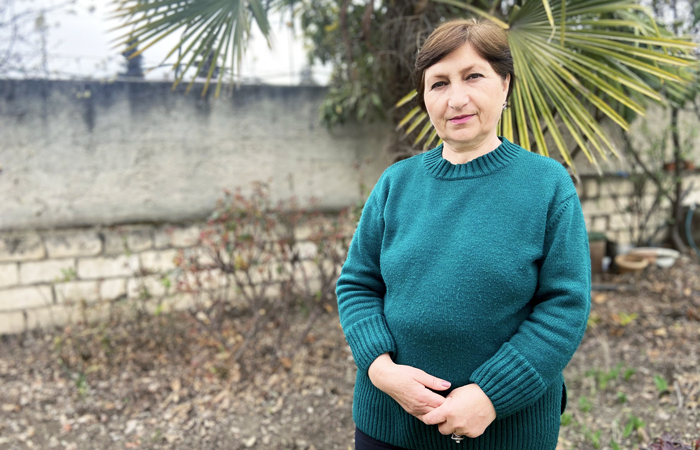 Alla Arzumanyan. / Photo: A. C.
Alla Arzumanyan. / Photo: A. C.Alla cannot compare the latest Karabakh war with the first one. According to her, the weapons were different, it was more developed and was a war of technologies –a fifth generation warfare. That is why she believes that this time women were less useful on the front line. Even so, they played a huge role in their towns.
Before the war, Alla Arzumanyan had her own restaurant Mayrik (Mother) and produced teas. Now, she has given her restaurant to a family from Hadrut. The family is working at the restaurant and trying to get back up on their feet. Alla just asked them to pay for the utility bills.
During the war, she had tea orders. Alla started collecting herbs during the shelling and wrapped the teas up. She sent the products to Yerevan, where individuals helped her to sell them.
The women’s club that she has founded still exists. Women meet. Although Alla says she is not in the mood to organize big events, she is planning to, as she considers it necessary. “After the war, women need a platform for interaction and development. There are so many negative things, everyone has lost something or someone, and we need to support each other,” explains Alla adding that women in Artsakh need psychological assistance. “After the 4-day war in 2016, we had meetings with a psychologist and then realized that women do need these therapies. Now the situation is worse. In 2016 it was sudden, but in 2020 we were waiting for a war to happen without expecting it to be this way.”
Alla cannot imagine her life anywhere outside Nagorno-Karabakh. Regardless she has many opportunities to leave she prefers to stay even after the bloody war. “My mom’s grave is here. My ancestors’ graves are here. I visit the graves every year. How can I leave?”.
Stranger in homeland
Kristin Balayan was a candidate for the presidential elections in Nagorno-Karabakh in 2020. She has lost the election, receiving 0.28% of the votes. She has stayed in Karabakh during the war and helped people who took refuge in shelters.
Six months after the start of the war we are meeting her in Yerevan, the capital of Armenia. Kristin tells that during the war her apartment was shelled, and their family had to move to Armenia.
Here in Yerevan, she has started to make handmade products and sell them in local exhibitions. Besides, she wants to share her knowledge with other women, preferably those who were displaced from Nagorno-Karabakh, thus helping them to earn money.
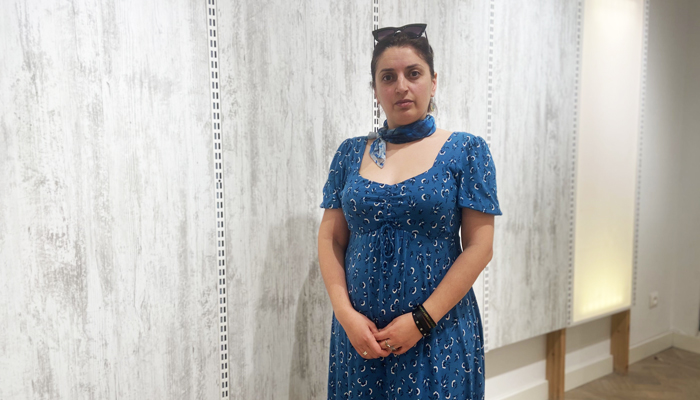 Kristin Balayan. / Photo: A. C.
Kristin Balayan. / Photo: A. C.All the income that Kristin receives is spent on buying new materials for workshops, so women who want to learn handmade will not pay for them. The first group of women will encompass 10-15 people, they will learn sewing. And Kristin will provide them with a platform where they will be able to sell their products.
However, Kristin misses Karabakh and wants to return home. She had to go back to Stepanakert for a couple of days, yet it was hard for her to put up with the new reality. “It was very stressful for me to return, as Russian peacekeepers were asking me in Russian where I was going. I have nothing against Russia and I do understand that the peacekeepers are doing their job, but still I was just going home. And now there is more needed to be done in Artsakh and I have to return home,” tells Kristin.
She also wants to continue her career in politics, as she believes that the situation has to be changed and she can influence it. She has analyzed the war and thinks that if she was in power during the war it would not have ended this way. Kristin considers her gender to be one of the main reasons why she has lost the election. She was expecting this outcome, as a woman presidential candidate was a new phenomenon to the people of Karabakh. Nevertheless, they need to see the success stories of female politicians in order to trust female presidential candidates. “If they will hօld a new election I will put my candidacy as I truly believe that I have a lot to do in my country. And I think more people believe in me now, as they have seen me in action.”
War makes past perish
The second Artsakh war cost a lot to Irina Safaryan and her family. Her family has lost their house in the Hadrut region, which was taken over by Azerbaijan. Her family fled to Yerevan throughout the war. Irina has returned to Stepanakert and currently coordinates the activities of the Wikiclub (Wikipedia club).
When the war started, Irina was in Stepanakert. She was working at the press center and was assisting local and foreign journalists. Irina stayed there for 10 days. When the situation escalated she left for Yerevan and continued working from there. Women from Karabakh soon started demonstrations in Yerevan. Irina was one of the leaders of the movement Artsakh’s Voice Matters. They made demonstrations in front of international organizations and the embassies of different countries: Germany, the USA, Russia, the UK, the EU, the UN. “If men were fighting on the front lines, women needed to tell their stories. That is how we started our protests and met with different ambassadors. I cannot say how it helped the situation but we tried to do our best. That was the best option to be useful to your country.”
She returned to Stepanakert after the war. “When I returned I was emotionally crushed. I didn’t know what I was going to do, whether I wanted to stay here, as I realized that this was a completely new reality,” she recalls adding that when she first came to Artsakh after the war, she realized that she had something to do there. “When we have so many problems in Artsakh, we need to consolidate all our powers to solve them. Besides, all my friends are here. And I’m feeling more useful here than in Yerevan.”
As a result, the Safaryan family has lost their houses in the Hadrut region. She cannot count the financial losses of the family. But for her, losses are not only financial. “My grandfather and grandmother have built that house. And the neighborhood where I grew up was fully burned down. As far as I know, the house that we lived in, still exists. We have lost it. I have lost photos of my childhood. Photos are the memory of a person, her identity. And I have lost them. And now I feel like I am a person without a past. Hadrut was the safest place in the world for me, so I was keeping all my stuff there. I had my corner in that house, where I could get answers to all my questions. Now I have lost everything,” tells Irina adding that the most important thing is the life of the people. And she has lost her many friends during this war.
The war affected also Wikiclub: it lost its Togh and Karvachar branches. The one in Karvachar still continues its activities online.
Moreover, a new foundation was established in Artsakh: Yerazank (Dream). They found that it would be better to raise money in Artsakh and lead some initiatives by themselves. Irina took up the position of the head of the foundation. They have already organized a charity concert in Stepanakert during Christmas. “We wanted to make people believe in a better future. It was tricky for us, as we didn’t know how people would react to a concert, but luckily they understood our purpose.” Now the target for the foundation is the “border guarding” villages. “We want to make changes in those villages, motivate the students so that they want to stay in their villages and work there.”
From one war zone to another
During the war, everything was closed down. Few cafes and shops were open. Samra was one of them. The cafe belongs to the Syrian-Armenian family of the Asmarians, which has moved to Stepanakert from another war zone: Aleppo, in Syria.
Throughout the war, the whole family of the Asmarians was working and serving food to the ones who were staying in Stepanakert. Isabel Dourgarian, mother of the family, was making food and the other members were helping her and serving the customers. Now they have a new addition to their menu: the “military soup”, which was “invented” during the war and was served for free. The soup doesn’t have a special recipe —Isabel was making it out of everything that she had at hand.
At first, it was hard for Isabel to adapt to the situation, but soon she felt in Artsakh like at home. “The safest place for us to come, after the war in Syria, was Artsakh. We have already learned that we can engage in agriculture,” recalls Isabel adding that they have purchased lands in Artsakh and founded a cafe in Stepanakert. “We knew that the war here is beyond the borders. It is not a political war, so we were not concerned. And the mindset and culture of Artsakh are close to the western mentality. It is a very safe place for our children. Even now, after the war, it is still safe for them. You are not afraid that something can happen to your children when they are late from school.”
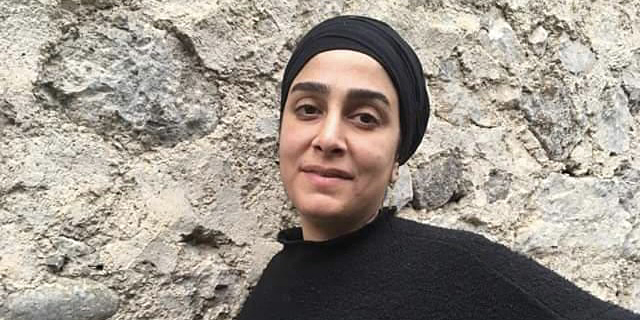 Isabel Dourgarian. / Photo: A. C.
Isabel Dourgarian. / Photo: A. C.According to Isabel, women were supporting men in the towns of Artsakh. “They were doing everything possible: cleaning, baking, supporting the mothers of the soldiers,” says Isabel recalling how they were using the products from their storage to make food for their customers. “I cannot understand how someone can earn money during the war. We had many customers during those days. It was important for them to know that there was an open place like their home where they could go.”
Isabel reminisces her excitement during the war, when she believed that Artsakh would eventually win and everything would come to normal. “The outcome of the war disappointed everyone. It was unexpected.”
The family was in Artsakh during the 4-day-war in 2016. Yet, according to Isabel, they never felt that there was a war going on. However, in 2020 they were living right in the middle of the front line. “If someone is in a bad condition, you cannot leave him/her. If you can help you need to stay. You cannot just leave. I consider leaving to be inhuman,” says Isabel, adding that she stayed with her husband during all 44 days of the war, their children having fled in the mid of October. They returned in December when schools started working in Artsakh.
The family has lost their fields in Hadrut, Kashatagh and the one in Berdadzor was damaged. Now Isabel says that they are back to their everyday lives: children are studying, they are working, and want to restore the field. “Nonetheless, the overall situation is different. People are so disappointed, they do not hope for a better future. Everyone is waiting for what will happen next. It is impossible to live in such an uncertain situation.”
Isabel says that some people consider her to be a foreigner and always ask whether they will leave Artsakh or not. “I always say I do not want to go. I want to serve as an example so that no one gets disappointed. As if I leave, you leave, others leave, the country will be emptied, it would be easier for them [Azerbaijanis] to implement their programs. On the other hand, if people stay, reproduce, and develop the country, I do not think that they can do it.”
Now Isabel wants to start another initiative and make life in Stepanakert more active: “I just want one thing: if you are able to fund any projects here, then do it. Because indeed it is a good place. I have lived abroad for many years and I can assure you this is a good place. We still do not lock our doors, our children are safe.”
With the support from:

With the support from the Agència Catalana
de Cooperació al Desenvolupament
and the Departament de Treball,
Afers Socials i Famílies
